Sun, salt in your hair, turquoise Atlantic waves, and just you and your surfboard. Can you imagine it? Portugal, located at the very edge of Europe, has one great advantage – waves that attract surfers from all over the world.
If you’re looking for the perfect combination of adrenaline, beautiful beaches, and a relaxed atmosphere, Portugal should be at the top of your travel list. Let’s take a look together at the best surfing spots, when and where to go, what to bring, and how to make the most of it.

Surfing Portugal: where to Surf
Portugal is a mecca for surfing, and you can surf in many places here. With over 800 kilometers of beautiful coastline, you’ll find countless beaches here where you can try to catch the right wave. Whether you’re a complete beginner or a seasoned surfer, every spot here is unique and guaranteed to excite you.
You might also like: Carrapateira – Surfer’s Paradise
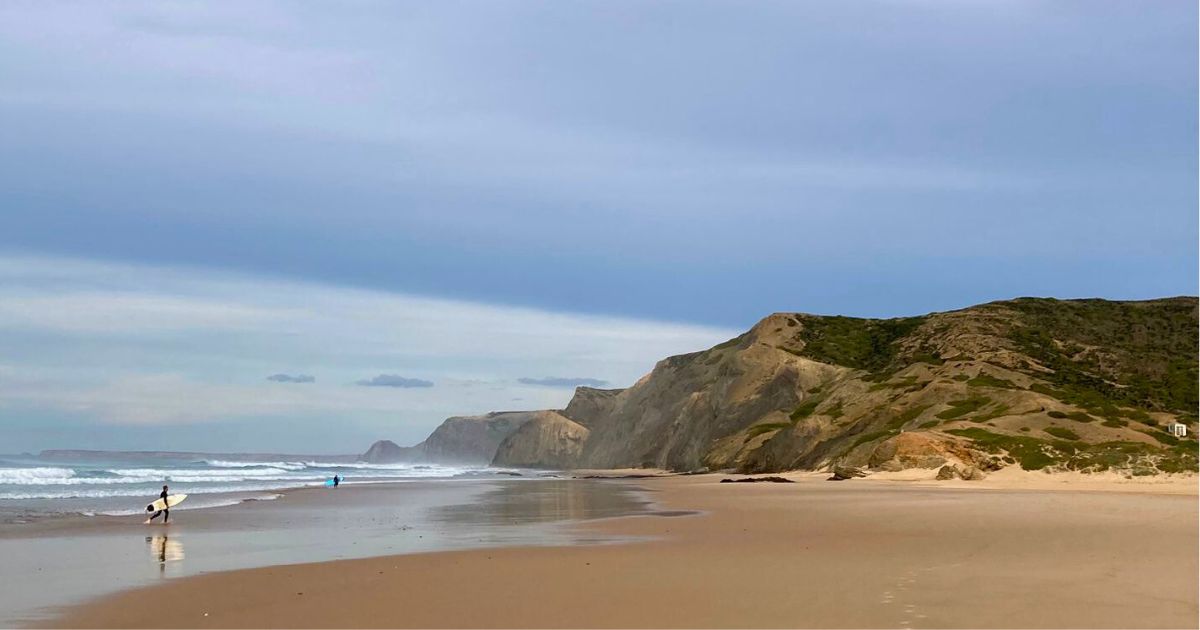
Algarve
I would describe Algarve as an absolute paradise for all surfers. Algarve is a sunny region on the southwestern coast of Portugal, and it’s ideal for surfing thanks to its diverse beaches and favorable conditions.
In Algarve, everyone will find their perfect beach – from calm bays with gentle waves, suitable for beginners, to stronger and larger waves that attract advanced surfers. Among the best beaches for surfing are Praia do Amado, Praia da Arrifana, Praia da Amoreira, or Praia do Castelejo. If you’re just starting with surfing, I recommend trying beaches like Praia do Beliche, Praia da Rocha, or Praia de Vale Figueiras.
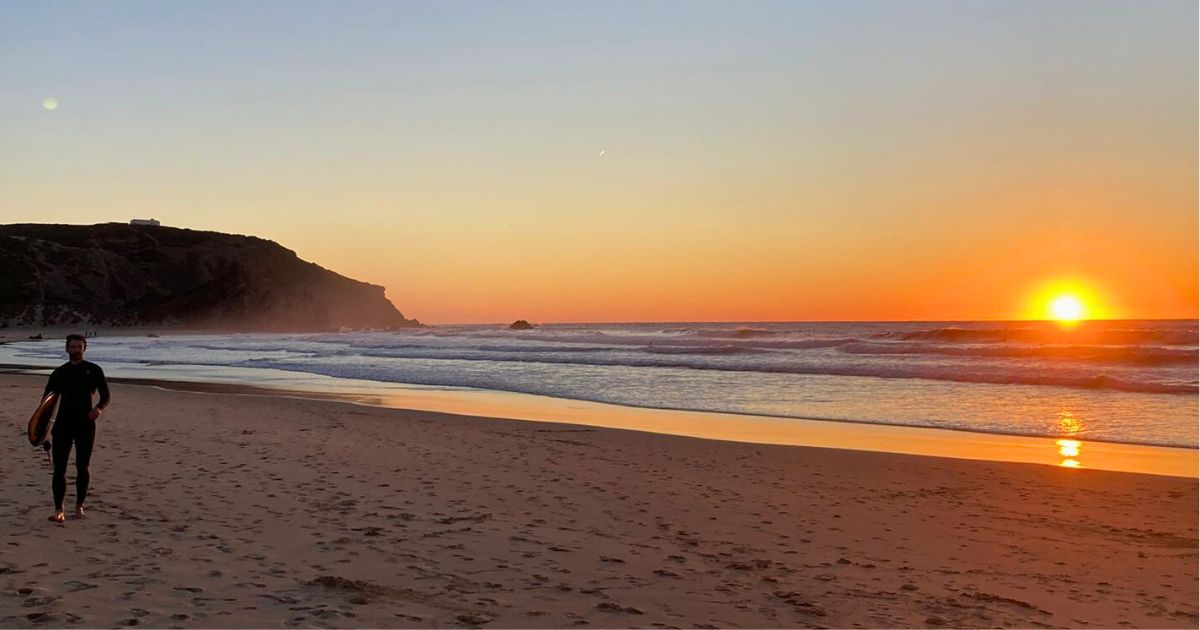
Nazaré
Nazaré is known on the world surfing map primarily for its enormous waves, reaching up to 30 meters in height. This is a place that attracts daring professional surfers who crave extremes. The conditions in Nazaré are definitely not for beginners, but for advanced surfers, Nazaré is one of the most famous places in the world.
Praia do Norte is the most famous beach in this area, where surfing competitions are held and where you can witness truly incredible, breathtaking performances. But if you don’t dare to try it yourself, just watching these daredevils is enough to keep you entertained.😉
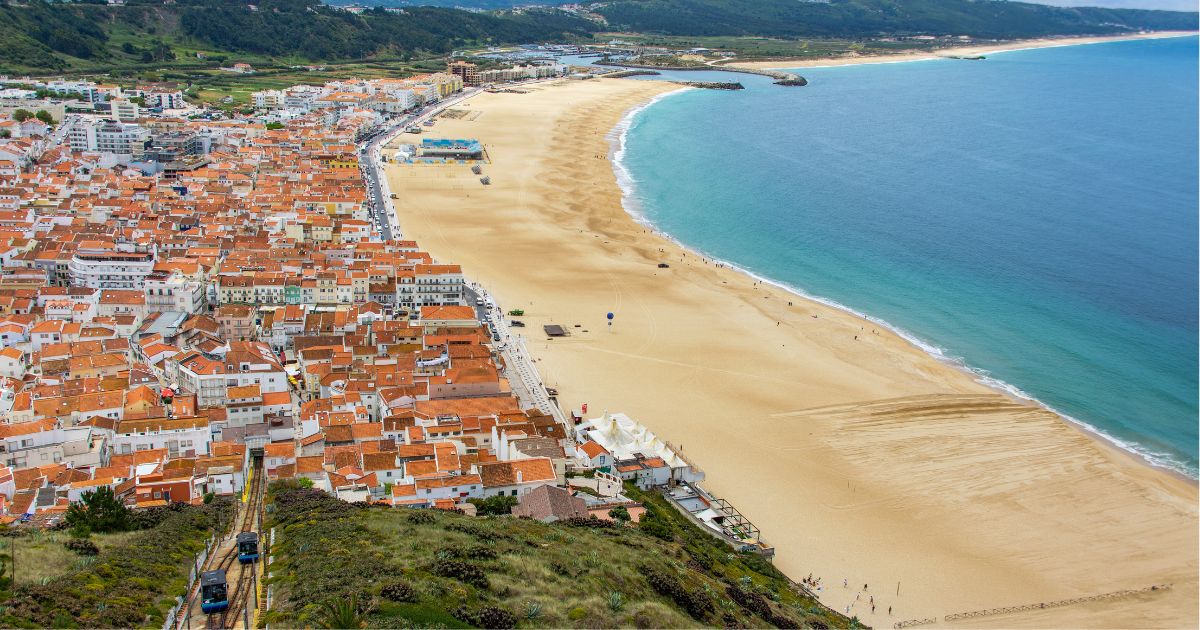
Peniche
Peniche is considered one of the best surfing spots in Portugal, and it’s ideal for surfers of all levels. This area offers consistent waves and accessible beaches, which are great for those who want to train or just enjoy surfing.
Praia dos Supertubos is one of the most famous beaches in Peniche and hosts international surfing competitions. This beach is a challenge even for advanced surfers, but you’ll also find calmer spots like Praia da Baleal, where you can feel comfortable even as a beginner.
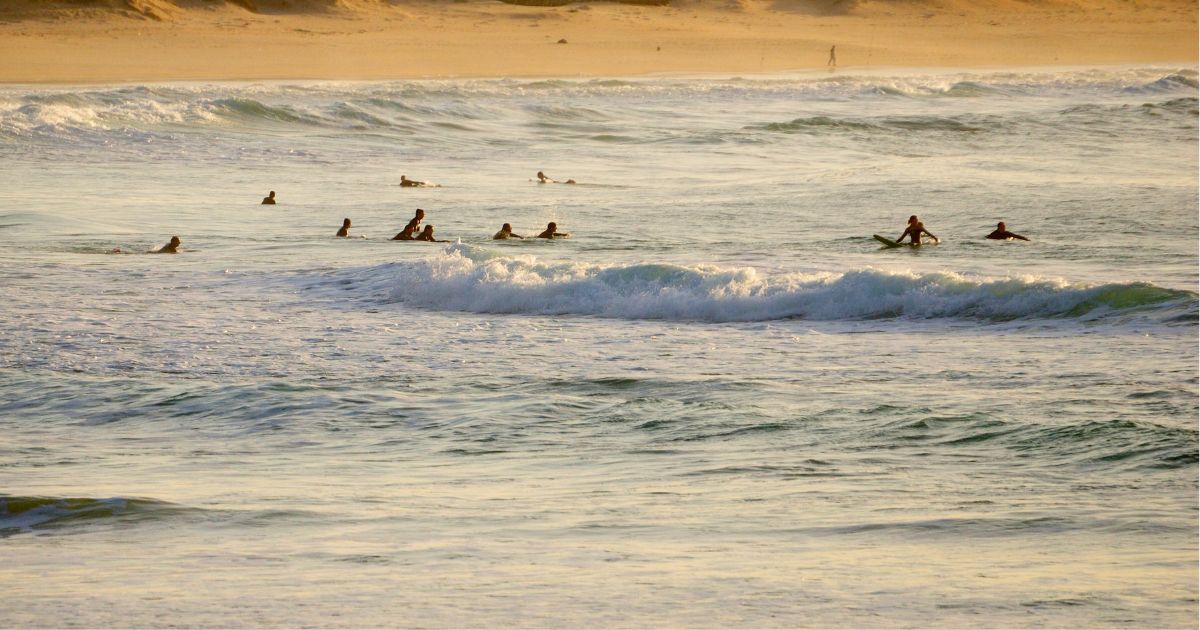
Ericeira
Ericeira is a fishing village renowned for surfing. In this area, you’ll find beaches for all levels of surfers, from beginners to professionals. Praia de Ribeira d’Ilhas is one of the best for advanced surfers and is known for its long and powerful waves. Praia dos Pescadores and Praia de São Julião are great for those who are starting out and looking for smaller waves.
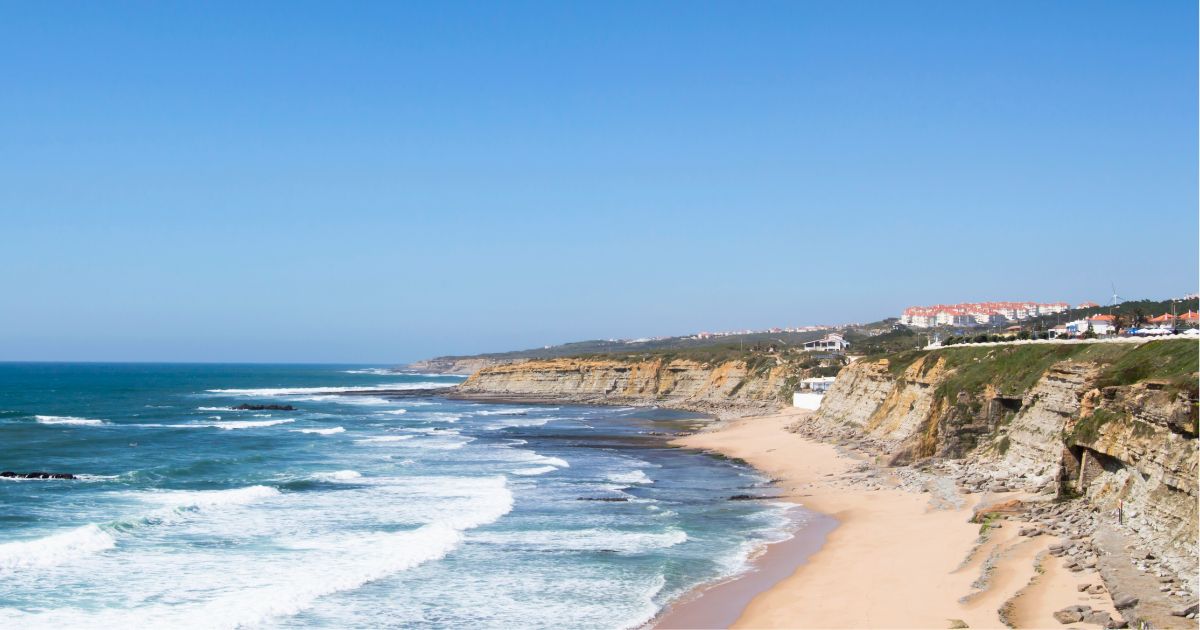
Costa Da Caparica
Costa da Caparica, near Lisbon, is a popular destination for local surfers and tourists. This stretch of coastline is ideal for beginners but also offers options for advanced surfers. The waves here are generally moderate to gentle, which is ideal for learning and improving technique. Praia de São João and Praia da Costa da Caparica are popular for training on smaller waves, while Praia dos CTT and Praia do Rio Mar also attract more experienced surfers looking for slightly larger waves.
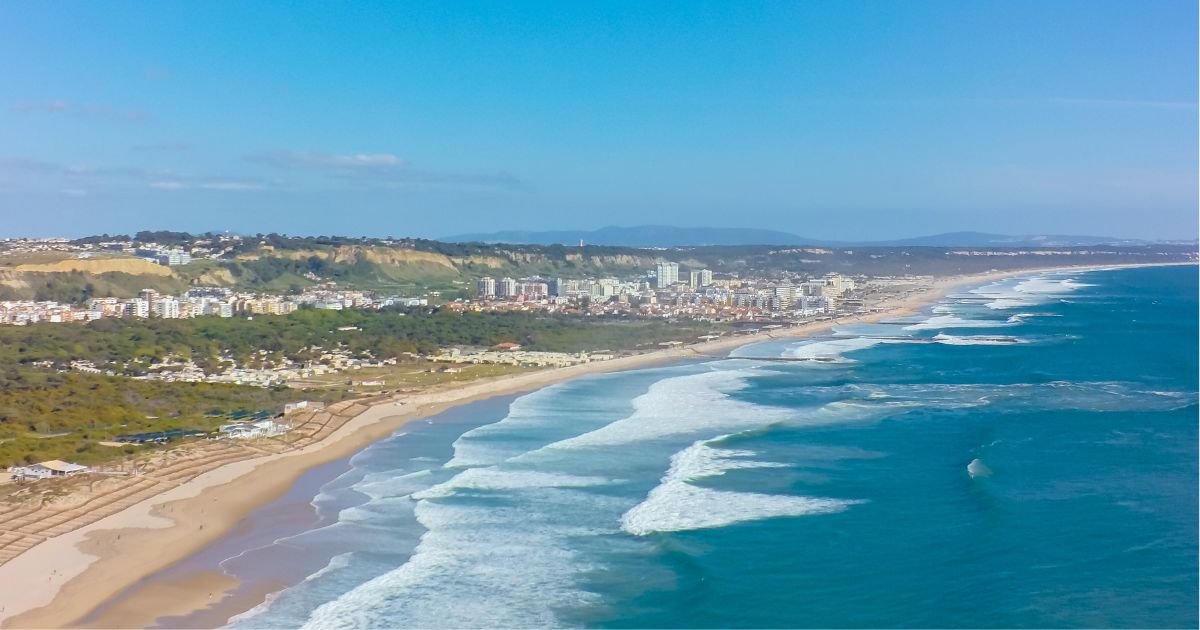
Figueira Da Foz
Figueira da Foz is a city on the western coast of Portugal that has become a popular spot for surfers due to its diverse conditions. Praia da Claridade is the main beach in the area and offers accessible waves for all levels of surfers, including novices. If you have more experience, head to Praia do Cabedelo, where you’ll encounter larger waves and more challenging conditions.
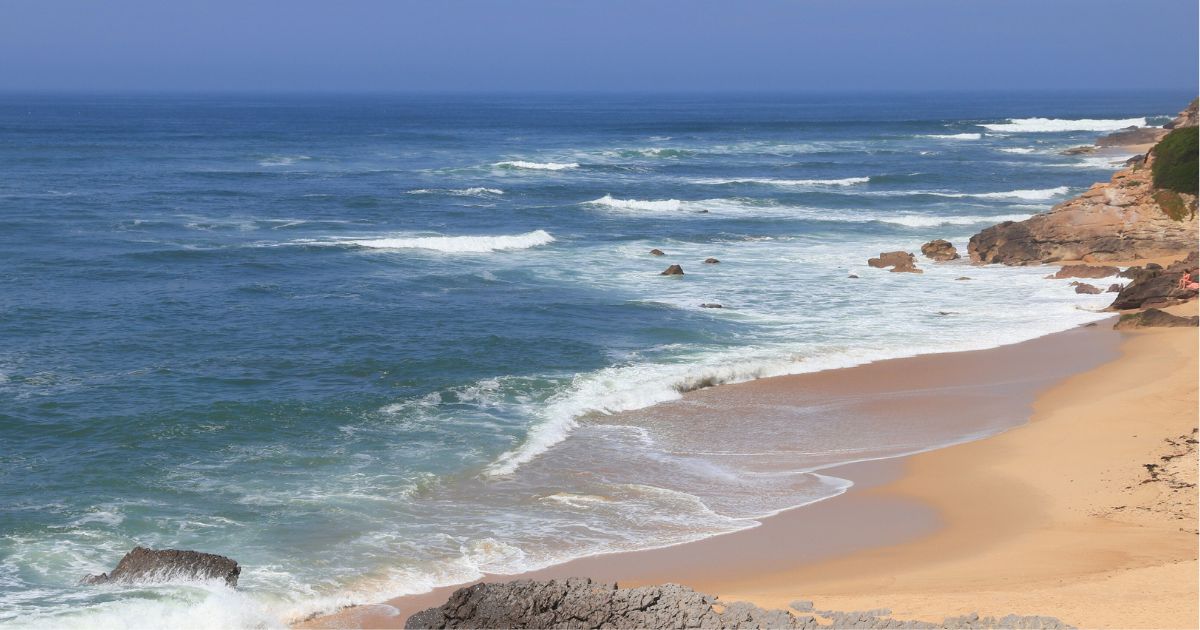
Espinho
Espinho, a city known for its sandy beaches and powerful waves, is another great destination for surfers, especially for advanced ones. Praia de Espinho is the most famous beach in the area, where surfing competitions are regularly held. For less experienced surfers, I recommend trying nearby beaches like Praia de Granja, where the conditions are a bit more manageable.
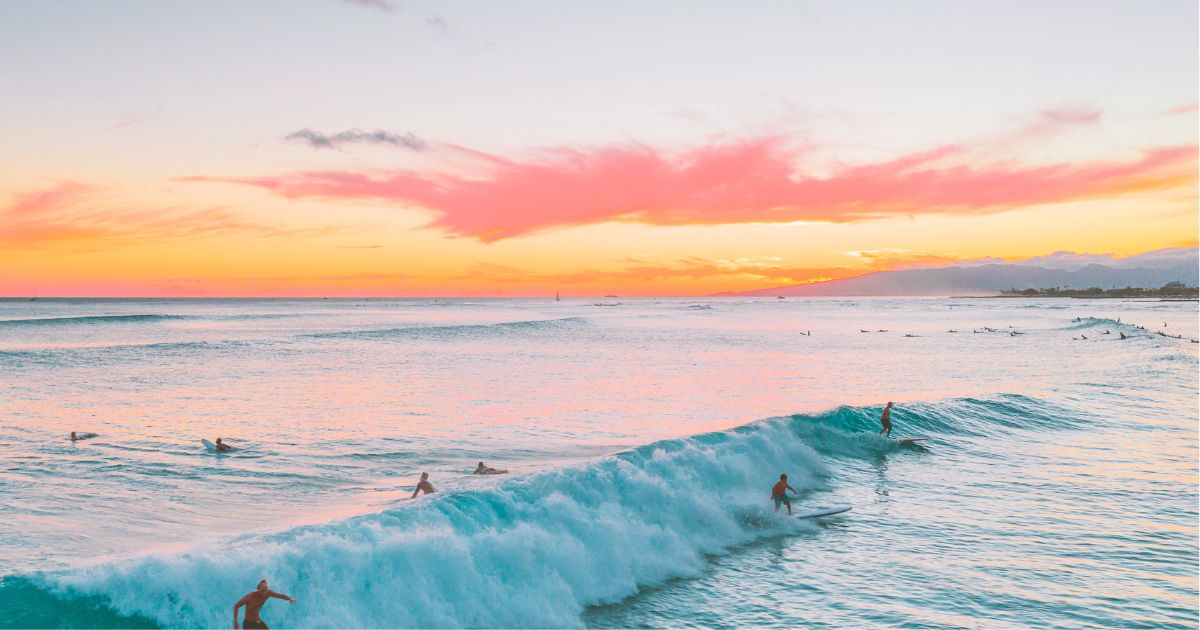
Viana Do Castelo
Viana do Castelo, in northwestern Portugal, has beaches with calmer and more stable conditions, ideal for beginners who want to learn to surf. Praia de Cabedelo is one of the best surfing spots here, not only for novices but also for intermediate surfers who want to train in smaller waves.
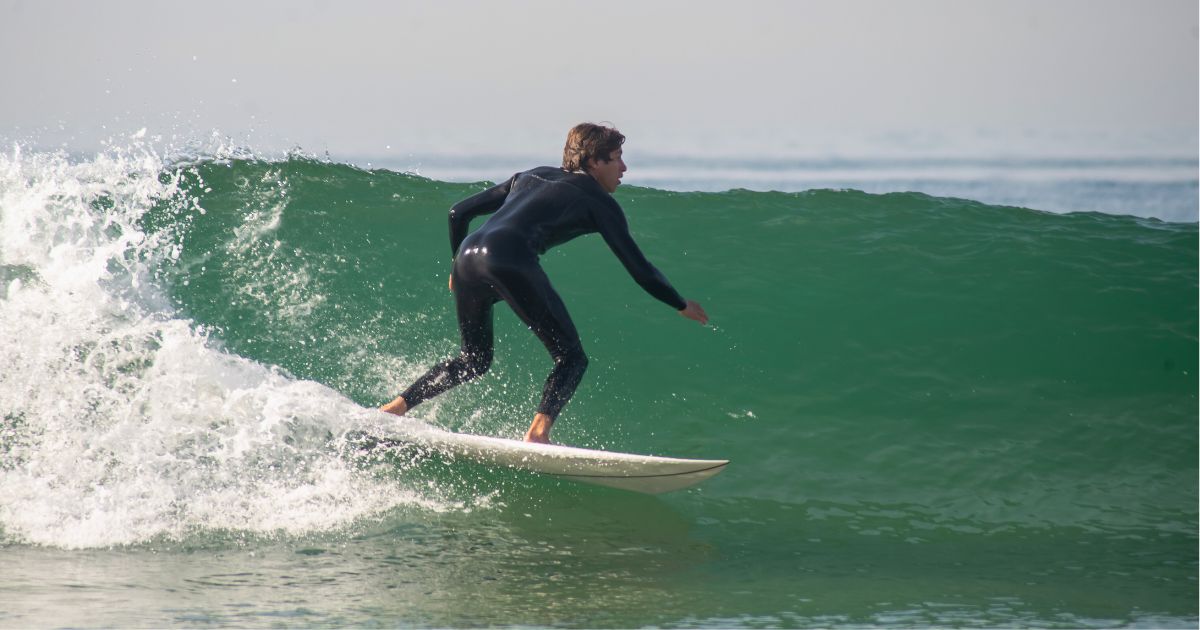
Matosinhos
Matosinhos, a short distance from Lisbon, is a great place for both beginners and intermediate surfers. Praia de Matosinhos is the main beach in this area, offering accessible conditions and a pleasant atmosphere. It’s an ideal spot for those who are just learning to surf or want to refine their technique.
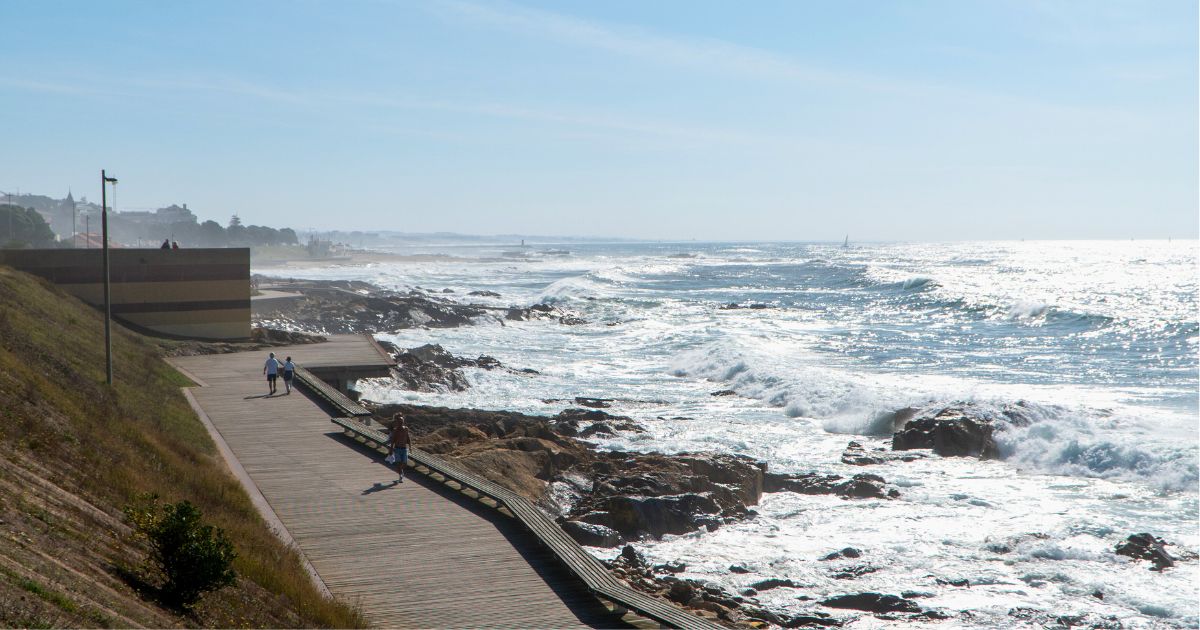
Praia Do Guincho
Praia do Guincho, just a short distance from Lisbon, is known for its strong waves and windy conditions that attract advanced surfers. So, if you’re a beginner, it’s better to look for calmer beaches nearby, but Guincho remains one of the most popular and beautiful surfing spots in Portugal.
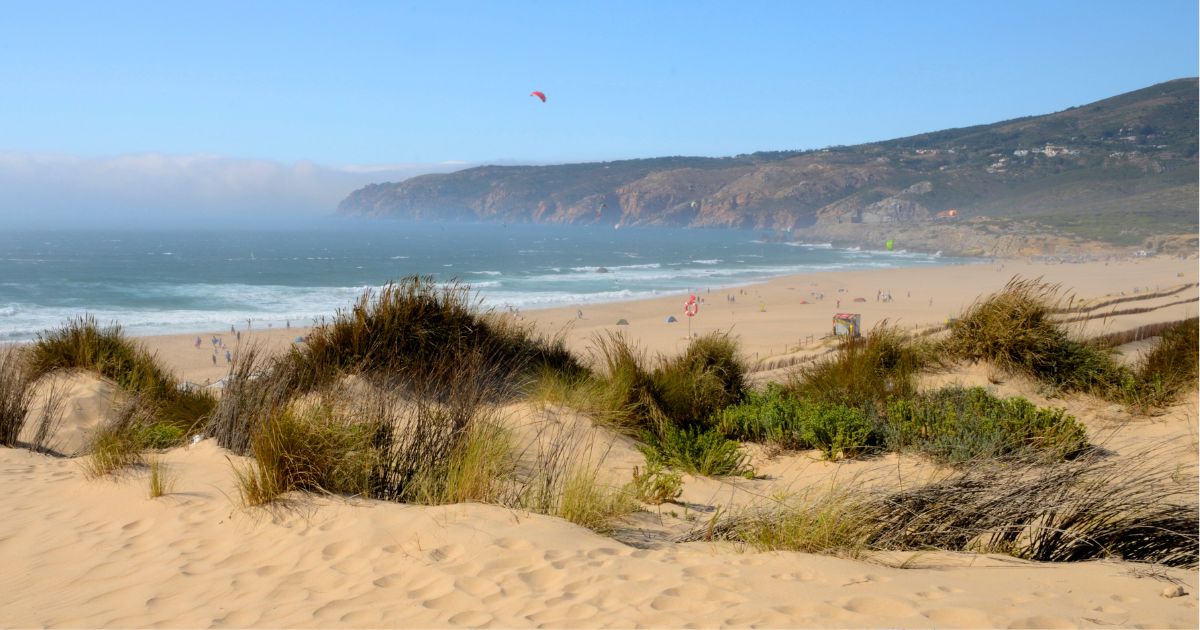
When to Go Surfing in Portugal
Spring and summer (April to October) are ideal for those who are just learning to surf. The waves are smaller, and it’s warm, so you’ll last much longer in the water than in winter. Autumn and winter (November to March) bring larger waves, which experienced surfers will especially appreciate. However, this doesn’t strictly mean you won’t learn to surf during the winter. It always depends on the specific conditions on a given day.
Read also: What to Do in Sagres
How and where to Learn Surfing in Portugal
In Portugal, there are many surf schools, surf camps, or private instructors who will also lend you all the necessary equipment. However, if you’re in Portugal outside the main season (e.g., in December), surf schools might be closed. But you can try to find an instructor through the Facebook group I know a guy – that’s how we found ours.😄
Similarly, you can book a lesson through the GetYourGuide portal.
Surfing: What You Need
As for surfing equipment, you will need:
- a surfboard,
- swimwear (smooth and tight-fitting without any embellishments are best)
- a wetsuit (short or long, depending on the weather),
- a leash (“board leash”),
- board wax,
- sunscreen,
- a towel or a handy surf poncho,
- optional: surf boots or a neoprene hood and gloves.
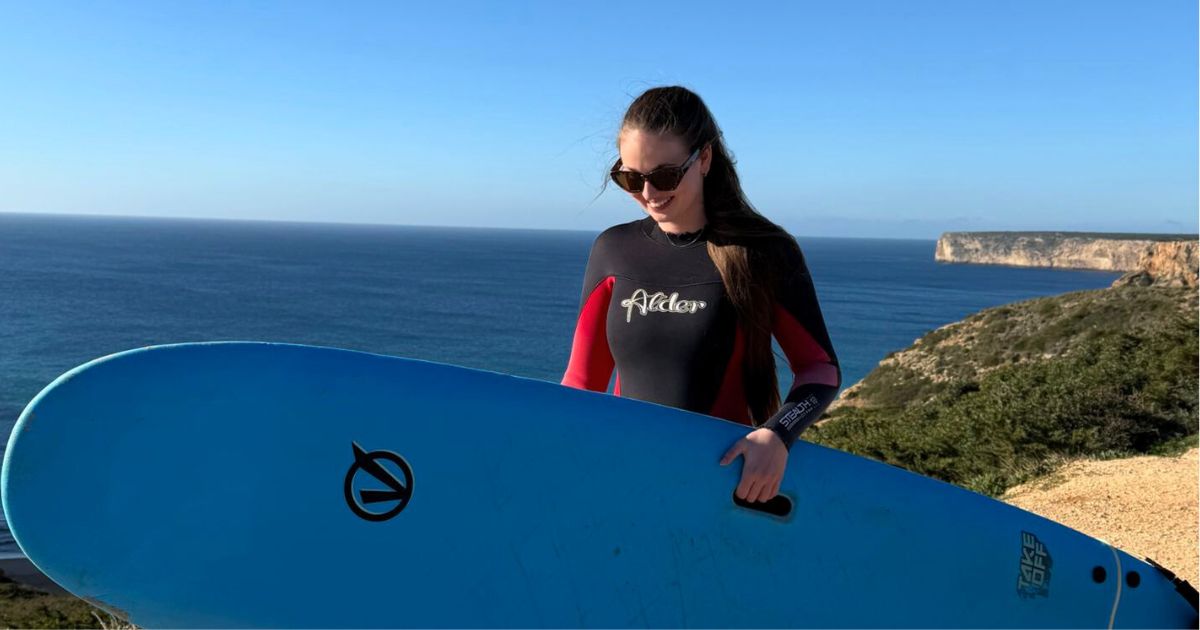
Other Places to Surf in Europe
If you’re ambitious about surfing in as many places as possible, like us, then within Europe, you can head to:
- Italy – Sardinia or Sicily,
- Spain – San Sebastián or the Canary Islands,
- France – Hossegor and Biarritz,
- England – Fistral Beach, Newquay, Cornwall,
- Netherlands – Scheveningen,
- Norway – Hoddevik,
- Denmark – Klitmøller, or Cold Hawaii.
Surfing and Insurance
If you’re going surfing abroad, don’t forget appropriate travel insurance. Also, keep in mind that surfing is often not included in basic insurance, but rather considered a high-risk sport. Personally, I would recommend SafetyWing travel insurance, which covers surfing as part of their basic package.
If you want to learn more about SafetyWing, read our review.
FAQ
Is surfing in Portugal suitable for complete beginners?
Yes, Portuguese beaches like Praia do Amado or Ericeira are ideal for beginner surfers.
What wetsuit should I bring to Portugal?
In summer, a short wetsuit will suffice; in winter, it’s better to choose a long one with a thickness of 4/3 mm.
Can I rent surfing equipment in Portugal?
Yes, you’ll find rental shops near almost every popular surf beach.
How much does a surfing lesson cost in Portugal?
Single lessons start from 30–65 EUR. A private lesson will cost 130 EUR or more.
Is surfing in Portugal safe?
Yes, but it’s necessary to respect safety rules and not overestimate your abilities.
Tips and Tricks for Your Vacation
Don’t Overpay for Flights
Search for flights on Kayak. It’s our favorite search engine because it scans the websites of all airlines and always finds the cheapest connection.
Book Your Accommodation Smartly
The best experiences we’ve had when looking for accommodation (from Alaska to Morocco) are with Booking.com, where hotels, apartments, and entire houses are usually the cheapest and most widely available.
Don’t Forget Travel Insurance
Good travel insurance will protect you against illness, accidents, theft, or flight cancellations. We’ve had a few hospital visits abroad, so we know how important it is to have proper insurance arranged.
Where we insure ourselves: SafetyWing (best for everyone) and TrueTraveller (for extra-long trips).
Why don’t we recommend any Czech insurance company? Because they have too many restrictions. They set limits on the number of days abroad, travel insurance via a credit card often requires you to pay medical expenses only with that card, and they frequently limit the number of returns to the Czech Republic.
Find the Best Experiences
Get Your Guide is a huge online marketplace where you can book guided walks, trips, skip-the-line tickets, tours, and much more. We always find some extra fun there!
